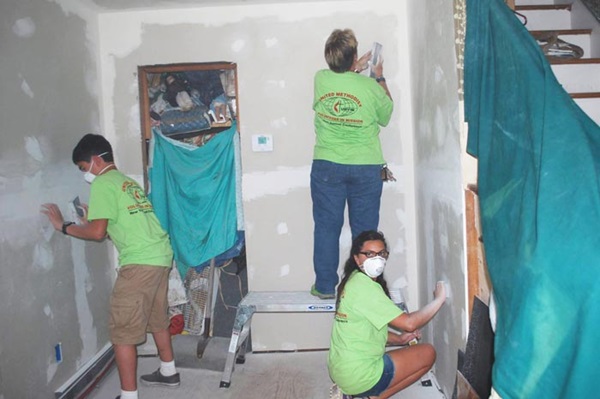"Not if … but when." That's the phrase Tom Vencuss and other disaster responders use when they talk about how to keep communities engaged in disaster preparedness. In other words, there will always be another disaster. Instead of interpreting this in a fatalistic way, Vencuss uses it as an incentive to form relationships and prepare.
"None of us is exempt from a disaster; while we may not be directly impacted by an event, we may be called upon to assist others in their relief and recovery efforts," said Vencuss, who will serve as the new disaster response coordinator for the New York conference.
Since 2012, Vencuss has taken a lead role in Hurricane Sandy recovery efforts in the conference. Super Storm Sandy affected 24 states, with the most severe damage in New York and New Jersey. In Cuba, Sandy was the strongest hurricane to hit the eastern region of the country in half a century.
In most of the communities worst hit by Sandy, recovery is shifting into preparedness. That doesn't mean disaster-related work is over, said Vencuss. "One key to an expedient and effective response is proper prior planning during 'in-between' times," he said.
Local churches are using an UMCOR-supported resource, "Connecting Neighbors," to help them develop response plans for the church and the wider community. On a district or conference-based level, there is training for early response teams, long-term recovery teams, and disaster emotional and spiritual care teams. At the same time, faith-based responders are making connections with National Voluntary Organizations Active in Disaster as well as state and local groups.
A facet of disaster response that has become very important to Wendy Vencuss, an UMCOR consultant, is emotional and spiritual care. "It is important for local houses of worship to create local 'care teams' between disasters," she said, noting that it is a very positive way for them to be an ongoing presence in the community before, during, and after disasters or any crisis.
In Cuba, though in a far different context, United Methodist disaster response has a parallel movement into disaster resilience.
There, UMCOR is helping to support three areas, explained Greg Forrester, executive in charge of U.S. and Cuba disaster response for UMCOR: "Building resilient family homes; adding capacity to house churches to enable them to become part of the community sheltering program under Cuban civil defense standards; and repairing three of the larger official churches that were damaged in the storm and bringing them up to shelter standards. All of this will enhance community members' survivability in the next storm."
Whether in New York, Cuba, or one of the many other areas damaged by Hurricane Sandy, Forrester said, "UMCOR is increasing the capacity of people and structures to survive the next storm. We are equipping the community for their response. It is vital ministry!"
Susan Kim, journalist and a regular contributor to www.umcor.org.
One of six churchwide Special Sundays with offerings of The United Methodist Church, UMCOR Sunday calls United Methodists to share the goodness of life with those who hurt. Your gifts to UMCOR Sunday lay the foundation for the United Methodist Committee on Relief (UMCOR) to share God's love with communities everywhere. The special offering underwrites UMCOR's "costs of doing business." This helps UMCOR to keep the promise that 100 percent of any gift to a specific UMCOR project will go toward that project, not administrative costs.
When you give generously on UMCOR Sunday, you make a difference in the lives of people who hurt. Give now.





